اخبار مهرآفرین
Read About Latest News of Mehrafarin
A sob called Kermanshah / report of Mehrafarin team from their travel to distribute donations of youth department
A sob called Kermanshah / report of Mehrafarin team from their travel to distribute donations of youth department
|
0 Comments
|
شنبه ۱۲,اسفند,۱۳۹۶
|
746 times
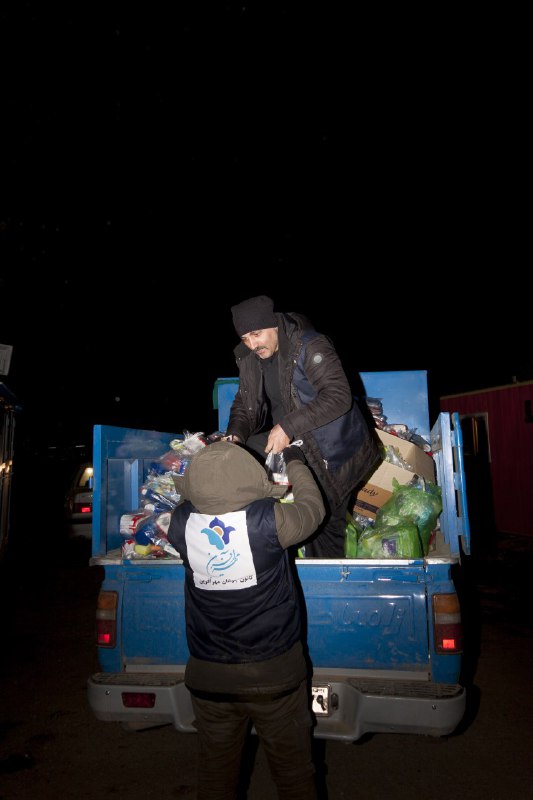
Early in morning we arrive to Sare Pole Zahab. We can observe snow here and there and the weather is extremely cold. On our way an earthquake occurred but we didn’t realize it. It was 4.2 Richter in Baneh, but was felt in most parts of Kermanshah. Earthquake is very common these days and it is really awful that people are used to death and destruction in their everyday life.
We are here with a few members to distribute donations of youth department. Mehrafarin team is located in olive garden. We made our way through paths to arrive there. Kanexes that members should stay in are installed here and a few residents are standing on our way.
Mr. Biglari, a member of Mehrafarin says: they are here every day, from morning till night. What do they want? Kanex.
But kanexes are distributed based on priorities but the residents can’t wait anymore. Sometimes they drive us insane by insisting over and over. The truth is both sides are right. The sources are restricted and demand is high. Families with young children and disabled members are in priority, meanwhile, other families have lost their members and don’t have shelters. Survival is very difficult in such cold weather in tents. They don’t have proper clothes; they wear sleepers with no sucks on. They come to us when they see a new group getting there.
They think that any strangers that comes there can help them. A lady comes to me, hugging a little baby, wearing thin clothes, not proper for this season and says: Sister! Can you do something to put us first in giving kanexes? I ask her: how old is your daughter? She answers: 3 years old and then points to a teenage boy who is standing a little further, looking at trees without paying attention to the crowd, and then she continues: he is my son. He is 15 years old. He has mental disorders after earthquake. He was hospitalized for two weeks in hospital. He was diagnosed with depression, stress and anxiety. He keeps telling that another earthquake will shake the ground and we will die, all of us will. Her husband is standing a little further, insisting on receiving kanex. I ask her: did the house belong to you? She answers: no we rented it. All of our house stuff are gone. For many years we had a small TV, it was about to stop working, when our son-in-law bought us a new one, my daughter got so excited. She was watching cartoons happily. The earthquake shook our house and destroyed everything, even the TV. I swear I would give one of my eyes, but such a thing didn’t happen to my baby. I say: thank God that all of you are safe and sound, but I know that preparing life stuff and what they need is very difficult for them, as well as it was very hard for them even before earthquake.
They know that they can’t return to their normal life, maybe for a few years, back to life that was full of poverty and limitations. Mr. Safari is a native resident who is helping Mehrafarin as a volunteer. Like other residents he has lost his house and is living in tent with his elderly parents. Safari takes us for a visit to city and shows a man that comes there, every single day, to receive a kanex. A forty-something year-old-man, thin, tired and poorly-dressed. Safari says that he will receive a kanex in one or two days to shelter himself and his family members.
Arriving to city, here and there, we observe nothing but ruins left from buildings and houses. Some houses are standing still, but as we get closer, we realize they will fall down very soon. It seems like no one dares to stay in houses because 60-70 percent of the houses are ruined and by consecutive earthquakes that keep happening, it is not safe to stay inside.
While we were in kanex, another earthquake occurred in Ghasre Shirin and shook Sare Pole Zahab as well.
It seems like earthquake won’t stop and no one is eager to rebuild their homes. We visit a family whose tent caught fire last night in storm. A man, with help of one of his relatives, is cleaning ashes that are left from the fire to settle a new tent. They are trying to settle the new tent in a position that will less encounter wind or storms. Last night was snowy so the ground is wet and snowy. His wife is staying inside the house, a house that has been half ruined in earthquake. His wife says whatever that was left from earthquake has now turned into ash. Fire burned them all. At first their neighbor’s tent caught fire and then later their own tent. Tents are made of nylon and disappear in fire very soon. They could just save themselves. She is showing me a bunch of stuff such as carpet, beds, and even their mobile phone that can’t be used right now. You can see pain and grief inside her eyes. You can understand that they loved their household, bought them with love and by borrowing money from here and there, indeed. Ladies no they will lack peace and comfort in future. With a few dishes and an oven, they try to cook something, with a lot of difficulty.
Washing dishes and clothes has turned into a big obstacle they face every day. Some women are sitting in park and washing clothes. Their hands are red because of cold weather. Some are waiting in line. They hang the clothes on ropes right in front of their tents, where children are playing. Children are always busy playing games, even when death and misfortune is right next to them. They are playing games so that they will be able to cope with this cruel life.
It seems like half of residents haven’t received kanexes to live in. There are towns that ten or twenty tents are settled next to one another, while some towns such as Maskane Mehr area mostly received kanexes.
Among kanexes, I see two kanexes titled as “beauty salons”. It is clear that women have started working, although they won’t have a lot of customers, definitely. When we go to them, they are both closed.
On other side of the street, they have started baking bread and some women, dressed in Kurdish clothes, are busy baking “saji” and “beji” breads.
A little further, we see a Felafel shop (kind of sandwich) and a person has started selling felafels. The shop is named “Earthquake Felafel”. You can see that people are trying hard to head back to normal life, but after earthquake nothing will be the way it used to be.
Earthquake turned into a certain point in the residents’ lives. Everything has changed and the most changes happened to people, their souls, their minds. Although what we observe in daytime is completely different to what we see at night while we are trying to distribute packages among residents.
At night, while a group of consolers and volunteer members of Mehrafarin accompany us, we make our way to tents to distribute hygienic packages, packages for infants and ladies, plus some toys that have been donated for this purpose. The packages include soap, tissues tooth brush, toothpaste, washing liquids, detergent powders, Vaseline and AD ointments. Vaseline and AD ointments are very useful in cold weather for dry skins and hands.
Infants’ packages include milk powder, diapers and clothes. In one of the tents, we see a mother with a fifteen-day-old infant. Another woman that can’t speak Persian, takes me to her tent where her very old mother is resting under a blanket. She is very sick and hardly says hello to me. I think how hard it is for them to use toilet and bathroom, which is shared by all of them. Some of them have to wait in long lines for a while to use toilets. A native volunteer is holding a child’s hand, saying: I promise I will bring him a ball tomorrow.
When we sit in car he says: he has lost his parents in earthquake and is now living alone with his grandfather. The little boy is smiling and waving hands to us, as we are leaving them. What we observe at nights, really shook our hearts, even more than what we see at daytime.
Under the twinkling lights of tents, the pain and bitterness of the residents is much more touchable. They are very quiet and patient, waiting for somebody to arrive and help them in any manner. Some of them can’t even speak Persian, but they thank us by their glances. Some of them are not patient and can’t deal with all of this, they have waited for over 70 days and feel like they are forgotten. What we can actually touch and feel at nights, among the tents settled, is the remarkable feeling of losing hope, that is widespread in all tents. Most of them are not optimist about government help and support. Even prior to earthquake, these people dealt with poverty, unemployment and other problems and now feel like an unwanted baby, left outside alone. What they feel is bitter feeling of being orphan.

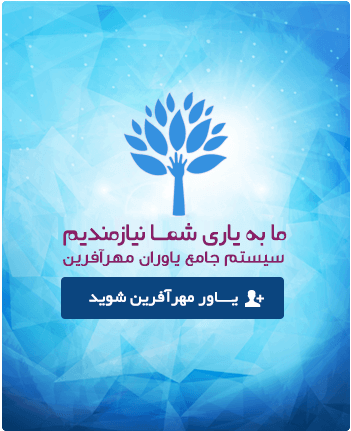
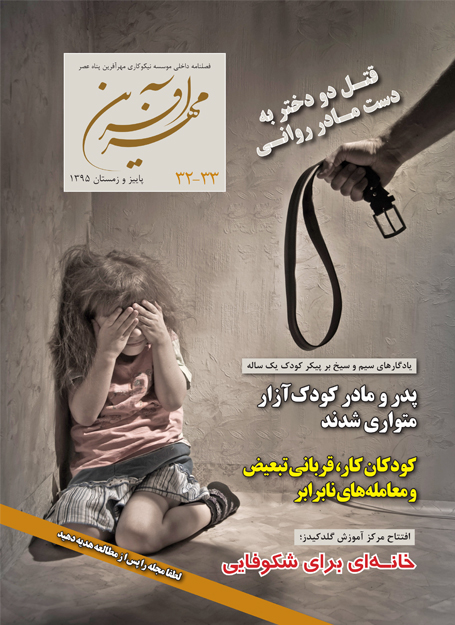
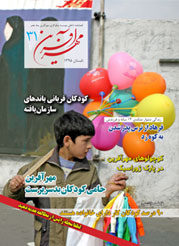
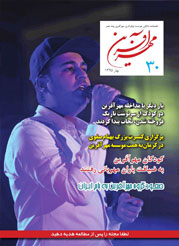
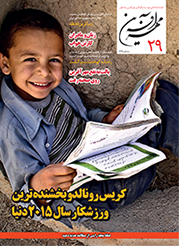
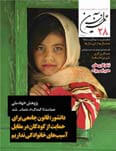

Comments
Read More